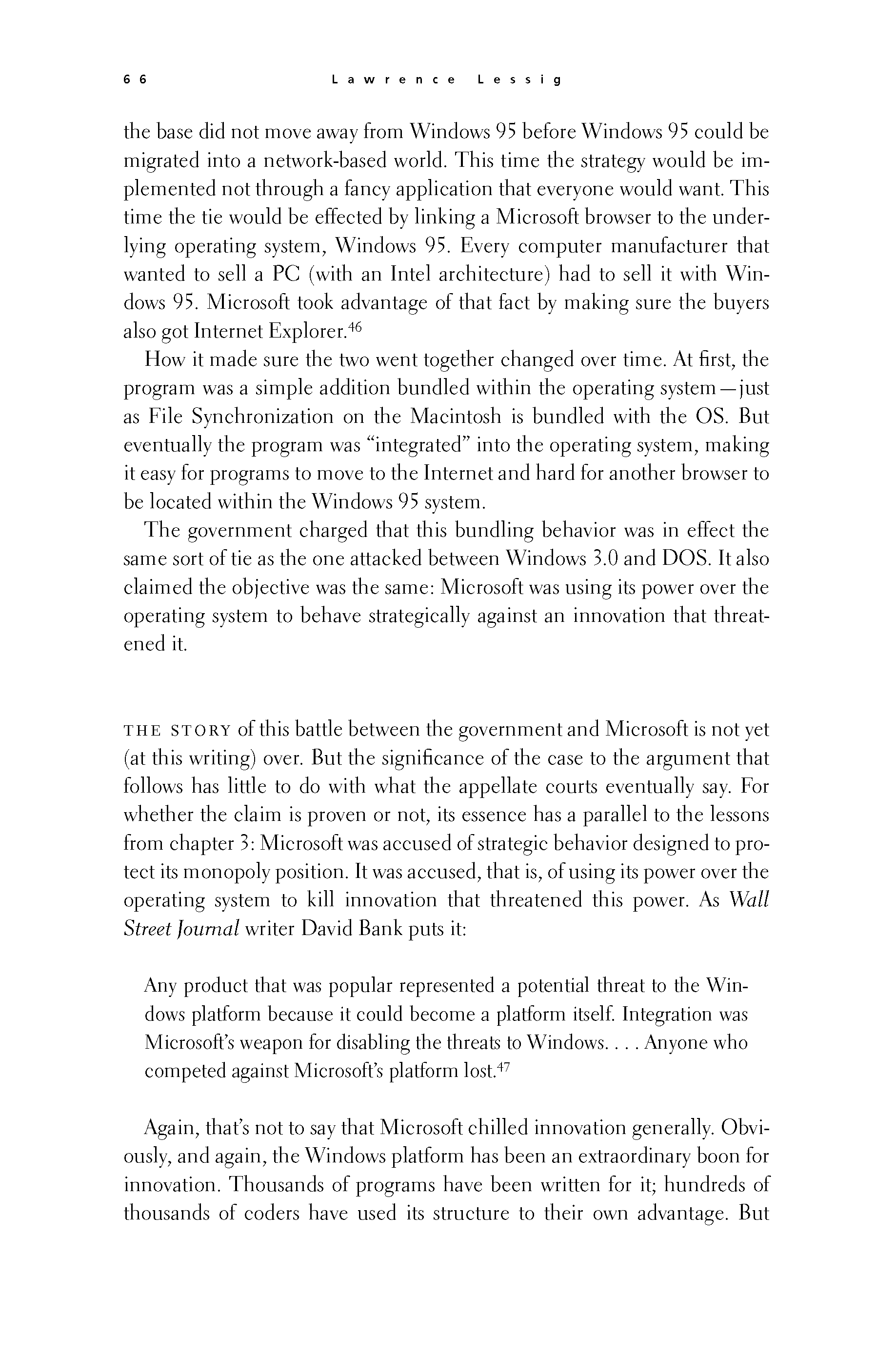 p065 _
-chap- _
toc-1 _
p066w _
toc-2 _
+chap+ _
p067
p065 _
-chap- _
toc-1 _
p066w _
toc-2 _
+chap+ _
p067
the base did not move away from Windows 95 before Windows 95 could be
migrated into a network-based world. This time the strategy would be im-
plemented not through a fancy application that everyone would want. This
time the tie would be effected by linking a Microsoft browser to the under-
lying operating system, Windows 95. Every computer manufacturer that
wanted to sell a PC (with an Intel architecture) had to sell it with Win-
dows 95. Microsoft took advantage of that fact by making sure the buyers
also got Internet Explorer.[4-46]
How it made sure the two went together changed over time. At first, the
program was a simple addition bundled within the operating system -- just
as File Synchronization on the Macintosh is bundled with the OS. But
eventually the program was "integrated" into the operating system, making
it easy for programs to move to the Internet and hard for another browser to
be located within the Windows 95 system.
The government charged that this bundling behavior was in effect the
same sort of tie as the one attacked between Windows 3.0 and DOS. It also
claimed the objective was the same: Microsoft was using its power over the
operating system to behave strategically against an innovation that threat-
ened it.
///\\\
The story of this battle between the government and Microsoft is not yet
(at this writing) over. But the significance of the case to the argument that
follows has little to do with what the appellate courts eventually say. For
whether the claim is proven or not, its essence has a parallel to the lessons
from chapter 3: Microsoft was accused of strategic behavior designed to pro-
tect its monopoly position. It was accused, that is, of using its power over the
operating system to kill innovation that threatened this power. As _Wall_
_Street_Journal_ writer David Bank puts it:
____ Any product that was popular represented a potential threat to the Win-
____ dows platform because it could become a platform itself. Integration was
____ Microsoft's weapon for disabling the threats to Windows... Anyone who
____ competed against Microsoft's platform lost.[4-47]
Again, that's not to say that Microsoft chilled innovation generally. Obvi-
ously, and again, the Windows platform has been an extraordinary boon for
innovation. Thousands of programs have been written for it; hundreds of
thousands of coders have used its structure to their own advantage. But
[[66]]
p065 _
-chap- _
toc-1 _
p066w _
toc-2 _
+chap+ _
p067